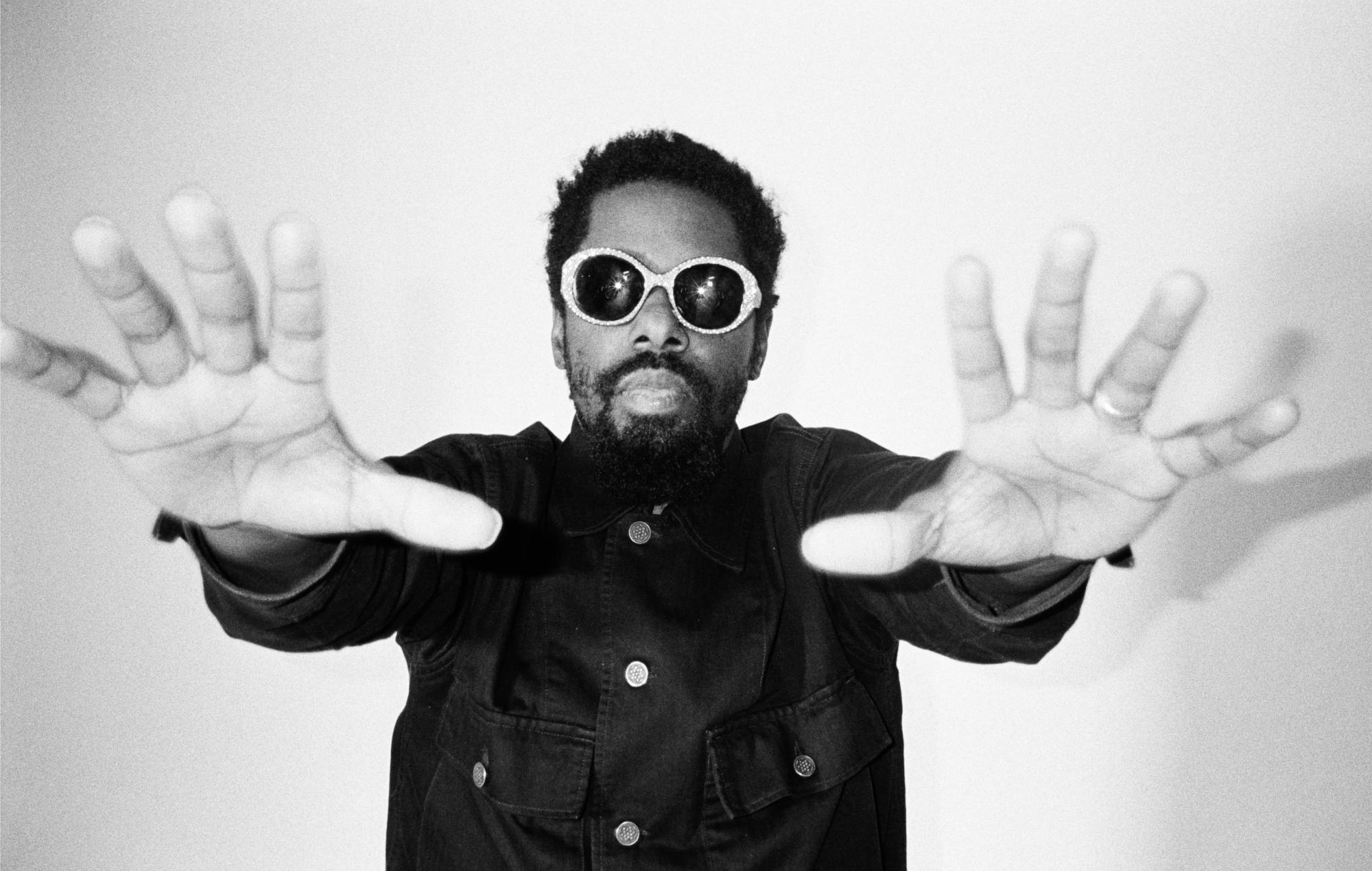'Public indecency and offending public morality'. Before April last year, those words probably meant about as much to Dax J as his name did to anyone outside of techno. The poster boy for the return of a fast, industrial sound - a counter to the stagnating mainstream - he maintained underground appeal while earning ever-bigger bookings. But a single incident looked set to change that.
After a video emerged of Dax playing a track which sampled the adhan - the Islamic call to prayer - at a club in majority-Muslim Tunisia, his name exploded out of the dance music world into the mainstream media, and for all the wrong reasons. Although already back home in Berlin, Dax was sentenced to a year in prison — the charges? Public indecency and offending public morality. It was a mistake that looked set to cost him his career, or worse — he received death threats and online abuse, and even had to cancel gigs in his native UK because the police were worried about retaliation. Thankfully, without incident, the news moved on and Dax’s life returned somewhat to normality, yet it still hung over him in the background, like the sword of Damocles. As anyone who’s ever faced adversity knows, you have to wear your scars with pride and learn from the mistakes that caused them, so Dax set about dealing with it the only way he knew how: making music. The result is his sophomore album, ‘Offending Public Morality’; a means of catharsis for himself, and a comment on wider societal issues and taboos that he believes need challenging.
“Otherwise it would always have been there,” he says, “this weird thing that’s floating around; whereas now I’ve captured it, tried to do something positive with it, and then it’s done.”
Rewind a decade, though, and all this would have seemed ludicrous to a young Dax Heddon. A junglist who’d made his name on former London pirate radio station, Origin FM, as DJ Dangerous — “I always used to do stupid shit like jump off of buildings when I was young, and my mates always used to call me ‘Dangerous’” — he’d grown tired of the fights and muggings in the local d&b scene and was looking for something new. With the end of his three-year music technology degree in sight, he decided a season in Ibiza was the answer, ploughing through the rest of his work in order to nish early and head out mid-April to get himself a job DJing before the season started.
“I went out there with [beach house label] Hed Kandi CDs cos I didn’t know anything,” he recalls as we chat in his apartment, still thawing slightly from the brisk Berlin winds, bellies full of his favourite local pizza. “I’d heard of Hed Kandi, I knew that was a thing, so I went to HMV and bought like four or five compilations and I was like, ‘I’m gonna get a DJ job with this’... and I did, I got a job!”

But there’s only so long anyone can hack being around tunes they hate, and after a few weeks “playing crap music” in San Antonio, Dax was ready to pack it in and head home — before the season had even started. Luckily, a friend convinced him to stick with it and finally, like so many ravers in the long illustrious history of Ibiza, his epiphany came in Space.
“I went to Space Opening; it was the first one I went to," he remembers. “Carl Cox came on and he was banging it! And I was like, ‘Fuuuuck, yeah!’ I remember at that moment I had the same feeling that I had when I went to my very first drum & bass rave when I was like 16... You’re like ‘Woah!’ and it’s kind of life-changing...I knew that was a turning point, it was a special moment.”
The next day he headed to the beach to tell his friend. “The only thing I knew of techno was the 2 Unlimited song, ‘No Limit’, cos it goes ‘techno techno techno techno’,” he says, mimicking the karate-like dance moves of the outfit’s rapper, Ray Slijngaard. “So I used to think techno was uncool and all my mates used to think techno was uncool, so I had to say to that guy, I needed reassurance. But he was like, ‘Yeah, techno’s wicked’, and I was like ‘OK... I’m into techno’.”
(And Dax’s relationship with Carl Cox didn’t end there: four years later he was back on the White Isle handing out flyers for the techno legend’s Music Is Revolution party, even getting to play Space’s Premier Etage with his promo team during the final party of the season; the year after that saw Coxy drop one of Dax’s tunes at Space Closing; and in 2017, Dax was invited to play one of only two Pure Carl Cox events the big man held at Privilege.)

DARK, DRIVING TECHNO
By the end of Dax’s first season, he’d replaced his Hed Kandi comps with a record box full of “dark, driving techno”. He was addicted; constantly hunting through DJ sets, researching online, discovering new music — or, in many cases, old music, as the current scene was growing increasingly minimal and harder tracks that grabbed his attention mainly came from the ‘90s and early 2000s.
“I was always drawn to that faster thing, but no one was really pushing it, it wasn’t really accepted,” he explains. “It definitely wasn’t accepted in London at the time cos London was all deep house then, and techno wasn’t big at all — the word techno wasn’t big. Dax wasn’t going to let a little thing like unpopularity stop him though, and together with some friends started putting on parties back home. “FUSE was blowing up on Brick Lane, and they were doing this Sunday thing... We were like ‘Yeah, we’re gonna do a Sunday after-party and it’s just gonna be banging techno and we’re gonna make it massive’. We just assumed cos FUSE got so big that we would as well, cos no one was doing techno,” he continues. “Then we put on the parties and they just flopped.”
His Down In Decadence events — so called because they were held at now-defunct Shoreditch venue The Last Days Of Decadence — may have died a death, but around the turn of the decade the spark for London’s underground techno resurgence had caught, and Dax joined up with Chris Stanford and Gareth Wild, DJing and releasing for the EarToGround party/label. Over the next few years the demand grew, and when beloved London Bridge club Cable was shut in 2013, Sunday after-party Jaded — already a verified clubbing institution in the capital — moved to its current home of Corsica Studios and offered the EarToGround crew a monthly residency. As Dax’s popularity has soared over the past few years he’s remained loyal to Jaded, eventually making it the only event he plays in London (until this month, in fact, his performance at Jaded on New Year’s Day 2017 remains his last in the city).
Dax’s days in London had been numbered ever since 2010, when another clubbing experience twisted his perspective: Berghain. “We got in about 10am Sunday morning and I remember walking up the stairs to the main room, and Boris was playing, and he was playing so hard... I didn’t know that clubs played this kind of music. I couldn’t believe it. And everyone was proper raving, going for it. It was a proper eye-opener,” he recalls, making it his mission to play the club when he visited again two years later.
“It wasn’t until a couple of years later that I moved to Berlin, but that was one of the main reasons... cos Berghain was so amazing.” He now lives about 10 minutes away and plays there on a regular basis. Talk about life goals...
BERLIN
Berlin’s history as a haven for artists looking to escape the financial pressures of cities such as London is long and well-documented, and like so many, Dax has flourished there. While cheap rent was the initial draw (and to some extent still is), over the years a much more unique and important benefit has emerged: the community. Dax’s studio is now housed in the same building as that of Ben Klock, Ansome and, previously, Rødhåd. The building is the former headquarters of the dreaded East German secret police, the Stasi — the beautiful irony of what goes on there now must be almost too much for some citizens.
“I mean it was really exciting, and inspiring as well, just to be surrounded by so many people who really appreciated and were really into what you were doing,” he says, even continuing the cycle, recently helping to find Blawan a flat there. In fact, Dax’s only complaint is the supermarkets — “I never thought I’d be dreaming of Tesco’s!” And, rather than diluting the talent pool, Dax believes the high concentration pushes artists to produce better work. “People are always gonna be coming here, but that’s what makes the level of quality so high here,” he explains. “Because there’s so many people, and if you’re not cutting it then people are gonna know. If you’re playing average music, if you’re making average music, then there’s so many other people doing good stuff that you’re not gonna get heard.” In turn this means that people take more risks, causing niche, experimental music to thrive: “You’ve got a strong noise scene, strong drone scene, strong ambient scene. It becomes this melting point of so many interrelated genres.”
Perhaps this is why Dax has thrived there; wearing his old junglist in influences on his sleeve, particularly on releases such as his acclaimed 2015 debut album ‘Shades Of Black’, has made him stand out from the crowd. The clattering of breaks had been largely absent from techno for a long time, but it’s been steadily on the increase over the past few years. Dax has even gone as far as to drop a few choice drum & bass bangers such as Konflict’s ‘Messiah’ and Bad Company’s ‘The Nine’ in his sets recently, and admits he still dreams of a release on Goldie’s revered Metalheadz label. (He’s even planning to make a couple of d&b tunes this year, although, no, he won’t be reviving his Dangerous alias!)
And Dax is far from the only one pushing for a more diverse techno scene. He’s excited by the range on offer now, from EBM to hardcore to the traditional stripped- back Berlin sound. “It’s not like one sound is dying and the other one is coming up,” he says. “I think they’re kind of branching off and the scene is just growing like a tree. It seems to be spreading its branches and getting bigger in all areas, which is great.”
Dax sees a move away from “standard, generic productions” in particular: “Like these young kids, they’re not afraid to put in some really distorted fast acid, maybe a 140 fast acid track. Whereas a few years ago people wouldn’t even really look at that, now it’s accepted. I get so many promos from young producers that I’ve never heard of and I check them out and they’re some 20-year-old kid from Italy or something, and I’m like, ‘This is a banger!’”
Dax’s enthusiasm for this wave of new talent and sonic experimentation is most obvious on his label, Monnom Black, where he’s fostered some of the scene’s most promising young talents, such as Stranger, Remco Beekwilder and I Hate Models, along with established acts such as EBM veteran Thomas P. Heckmann, whose new album ‘Body Music’ landed in March.
“Really the main thing for me is, am I gonna play the music?” Dax explains, when probed on his A&Ring. “Most of the releases are club tracks, it’s not meant for home listening. The records are meant to be played in clubs or for DJs to play them in their sets. And then there’s other factors, like are they good DJs? It’s always nice if they are. And it’s nice to grow an artist, and also help them. Like Stranger, he did the release and then
I got him onto Elite Management, my agency, and the same with Remco, who did ‘LSD’, now he’s on Elite. “And with the Heckmann thing, I’ve been playing Heckmann tracks for years, cos he’s got so much good stuff. Then I thought, ‘I have to get him on the label’. It makes sense. So I contacted him and we organised it, and I’m so pleased to get him on cos he’s like a hero of mine.”
"If you’re playing average music, if you’re making average music, then there’s so many other people doing good stuff that you’re not gonna get heard.”



